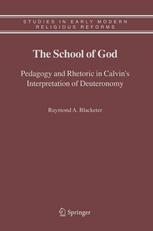

Most ebook files are in PDF format, so you can easily read them using various software such as Foxit Reader or directly on the Google Chrome browser.
Some ebook files are released by publishers in other formats such as .awz, .mobi, .epub, .fb2, etc. You may need to install specific software to read these formats on mobile/PC, such as Calibre.
Please read the tutorial at this link: https://ebookbell.com/faq
We offer FREE conversion to the popular formats you request; however, this may take some time. Therefore, right after payment, please email us, and we will try to provide the service as quickly as possible.
For some exceptional file formats or broken links (if any), please refrain from opening any disputes. Instead, email us first, and we will try to assist within a maximum of 6 hours.
EbookBell Team

0.0
0 reviewsThis study examines Jean Calvin’s attempt to nurture a godly society and further his vision of ecclesiastical and societal reform by means of sound pedagogy and persuasive rhetoric. The focus of this work is Calvin’s interpretation of the latter Pentateuch, and particularly the book of Deuteronomy. The author examines Calvin’s exegesis and rhetoric in his commentary on the latter Pentateuch, as well as the sermons that Calvin preached on Deuteronomy—material that has received little scholarly attention. Calvin’s interpretations are compared with the preceding exegetical tradition and with his contemporaries, and always considered in the contexts of the early modern interest in classical rhetoric and that of the reform of church, theology, and society in Switzerland and beyond. Commonly held assumptions about Calvin’s methodology, such as his alleged aversion to rhetoric and the scholarly fixation on his laconic style, are challenged, nuanced, and corrected.
Because of its fresh, contextual approach to Calvin’s thought, this study will be an important resource for students of the history of exegesis as well as for Calvin scholars, and it will appeal to seminary as well as university students.